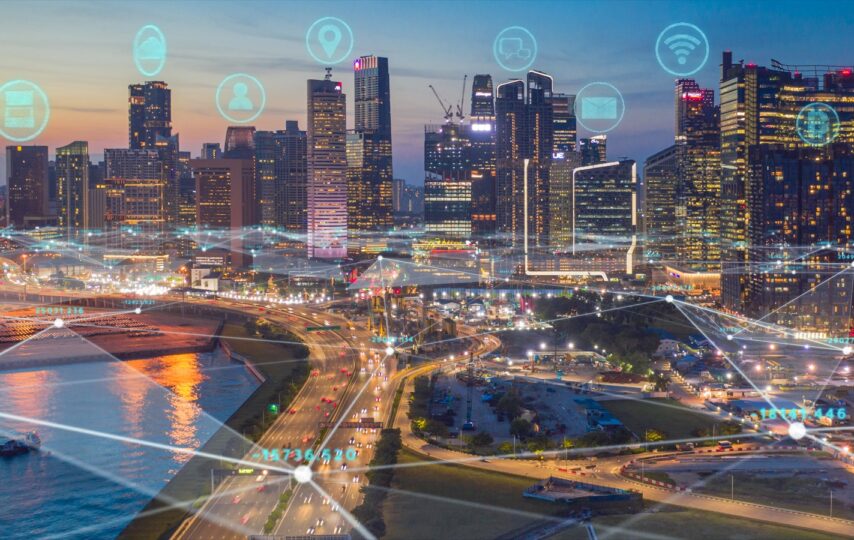Many localities around the world are experimenting with smart city technologies. But according to the Singapore government, its work in this direction is “much more ambitious and reaches a national scale.” In 2014, the authorities launched the Smart Nation urban development program. Within its framework, the state, business and activists jointly develop, implement and improve high-tech projects in order to improve the quality of life for all categories of the population.
The state accelerator of Singapore Infocomm Investments Pte Ltd creates a favorable ecosystem for the rapid introduction of innovations in the country. The organization fosters interaction between the government, start-ups, individuals, corporations and investors. The solutions they jointly create – be it services for monitoring municipal problems or collecting medical data – are subsequently supplemented with user information. As a result, all participants in the process make their own contribution and receive tangible benefits.
Here are four areas that make Singapore smarter than the average city.
- Healthier citizens are healthier cities.
How city leaders shape local health care ultimately determines the prosperity of the city and its citizens. The health ecosystem is very important, which represents continuous learning and innovation, builds health infrastructure and offers reliable, specialized care. It also matters how well a city’s leadership puts empathy at the heart of its healthcare infrastructure.
In Singapore, a key example is the development of the Healthcity Novena project, a community-based health development master plan that develops infrastructure such as walkways, underground car parks and outdoor green spaces to complement and improve the lives of citizens. A city whose leaders actively think about these aspects of health care will be inherently healthier.
- A home with a heart is a real home
The Singapore Housing Development Board (HDB) offers all citizens access to free public housing. In addition, the country’s leaders have created a type of public housing that is more than just living space; public housing also extends to larger community areas that integrate liveability, resilience and growth.
- Mobility is a shared experience of the community
The City’s Local Surface Transportation Authority (LTA) has expanded the pilot area for autonomous vehicles (AVs) to cover the entire western part of Singapore. City leaders recognize that in order to create sustainable productive capacities for citizens, mobility must be designed to not only cover the last kilometer of the journey, but also allow everyone to participate in the life of the city.
Singapore is building a transportation infrastructure system in which daily commuting can be integrated with all active mobility (walking, cycling), public transport services (mass rapid transit (MRT) and buses) available.
Cycling offers more liveable recreational areas, promotes sustainable energy use and reduces pollution. By applying cutting-edge technology to mobility, the city enables its citizens to lead more active lives through convenient and cost-effective transportation.
- Cryptocurrency adoption
Cryptocurrency adoption in Singapore has been increasing steadily. Especially for Bitcoin, the adoption and awareness of BTC to SGD trading has reached its peak over the last year. Many people seem to be interested to buy litecoin with PayPal among other alt coins. This kind of financial freedom allows people to interact with new and emerging technologies.
The people of Singapore regard the father of the nation as a tough and just ruler. The country has a strict punishment system. Singapore has the highest death penalty rate, according to the penitentiary system. Most often, murderers and drug dealers are sent to the gallows.








